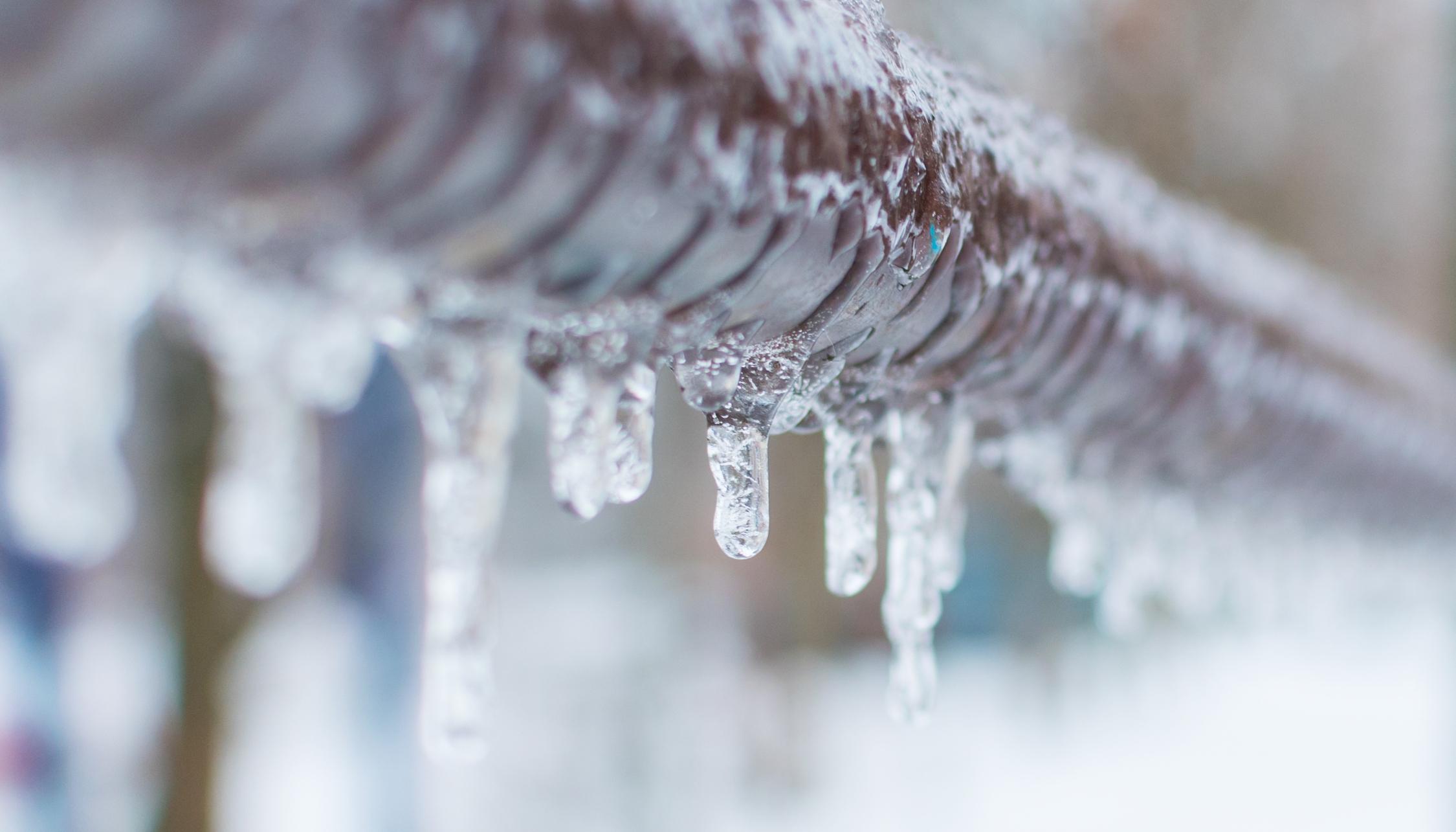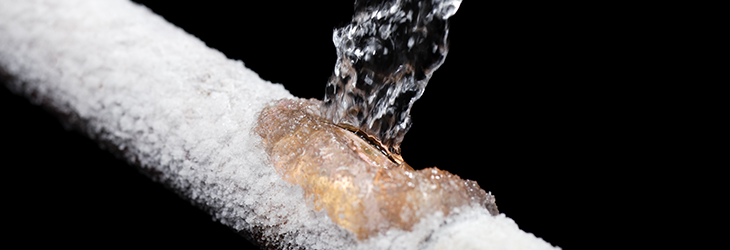Want to save with Paschal? Don’t miss our current offers and specials

Want to save with Paschal? Don’t miss our current offers and specials
Return to Paschal Resource & Education Hub

Nobody wants to deal with the damages, expenses, and messes that are caused by burst pipes in your home or business. So, what causes these pipes to burst during the winter? The basic answer is that the water coming into your house from the outside is much colder than it was during the summer months. The cold water causes your pipes to contract and in weaker parts, can cause the pipe to burst. This happens because the pipe becomes unable to withhold the water pressures inside it.
Pipes typically freeze when the temperature around the pipe is below 20 degrees. When water gets that cold, it freezes and expands, which increases the pressure in your pipes, causing them to burst. This means unheated spaces are more vulnerable—think basements, attics, and garages. But even pipes under your cabinets can freeze and burst, especially if they’re on an exterior wall!
There’s good news, though: Your pipes might already be prepared to face the cold temps. It all depends on just how extreme the weather is, the age of your home, the age of your pipes, and any upgrades you’ve made. No matter what your situation, we want to help.
As you’re getting your home ready for winter, take an extra couple of minutes to fully drain and disconnect all exterior hoses. Any leftover water in the hose can freeze and expand, which can cause a burst at the point of connection between your hose and the pipes leading into your home.
Products like pipe insulation or heat tape can warm your pipes throughout the coldest winter nights. Your local hardware store will carry foam insulation you can easily cut with a utility knife and wrap around your pipes. If you want to go a little more high-tech, heat tape may be your solution. But that stuff can be tricky, so call us first.
Keeping your garage doors closed is especially important if you have supply lines in there. Additionally, you should drive extra attention to the pipes in your garage. If your water heater is located in your garage (like many are) then you should consider insulating the area around it.
When it’s really cold outside, you should always keep one or two faucets dripping with cold water. The water moving through your pipes will prevent the lines from freezing and bursting. Allowing just a small drip should not increase your water bill drastically, and it is certainly cheaper than dealing with a water leak after a pipe bursts.

Since cold temperatures are the primary cause of burst pipes, you might be tempted to think your indoor, under-the-cabinet lines are safe. But not as much warm air reaches them as you might think! Open your cabinet doors to direct more warm air toward your pipes. And don’t forget to remove any hazardous cleaning supplies from under the sinks. An ER visit is definitely not the holiday activity your family needs!
Take a look at your pipes to identify any problem areas. Look for loose connections, leaks, cracks—anything that makes the line vulnerable. This is also the perfect time to seal any leaks that bring cold air into your home. Take a look at your electrical wiring, dryer vents, pipes, and around doors and windows. Even a teeny-tiny opening can let in enough cold air to burst your pipes.
A small rise in your heating costs isn’t as expensive as a burst pipe. Always keep the thermostat set higher than 55 degrees, even when you’re not home. Your pipes will thank you. While we normally recommend against using space heaters, they can be helpful in directing some additional heat towards pipes under sinks and in colder areas of your home. Make sure that they are not left running for long periods of time, monitored when in use, and not located near any flammable materials or fire hazards.
If you’re going away for the holidays, you need to be sure to shut off the water to your home at the main valve. Without a water supply, your pipes are much less likely to freeze and burst!
If you find yourself in the unfortunate situation of having a busted pipe in your home that is causing water to leak into your home, then it is critical that you follow these important steps.
In order to prevent water from continuing to pour into your home at a fast pace, you need to shut off the water main to your home. In most suburban residential homes, the water shut off is located under a sewer cover near your street.
Watch this short clip below that should help you identify where your water shutoff is located, and how to turn off the water to your home or at the source of the leak.
We’re your Northwest Arkansas, Fort Smith River Valley & Southwest Missouri plumbing pros. We can help identify, prevent, and fix any potential disasters before they happen. Give us a call today!
We love helping you with your HVAC, Plumbing & Electrical problems, big and small. For more tips and tricks for your home, follow us.